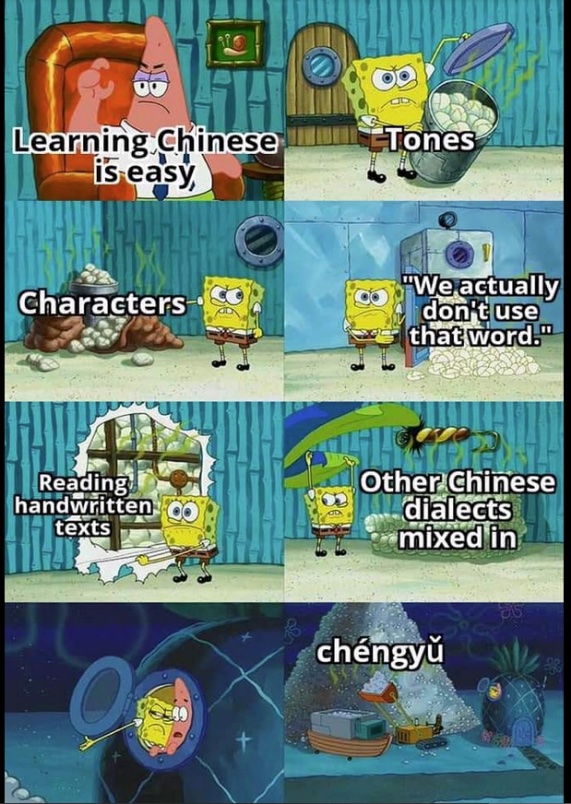The scatology and physiology of push and pull
Having just written about "Drainage issues" (6/25/23), with a graphic depiction of what causes the problem with the drainage system in question, I am emboldened finally to answer a question that one of my graduate students has been asking about for several years. Namely, why do Chinese say "pull poo / shit / excrement" (lāshǐ 拉屎 / lā dàbiàn 拉大便)? What's the logic of that usage? How can one pull excrement when one defecates? Wouldn't it make more sense to say "push" (tuī 推)? Think about it. A bowel movement involves peristalsis,
And what do doctors (and husbands) always say to a woman in labor? "Push", of course. And the baby comes out from the birth canal.
Read the rest of this entry »
